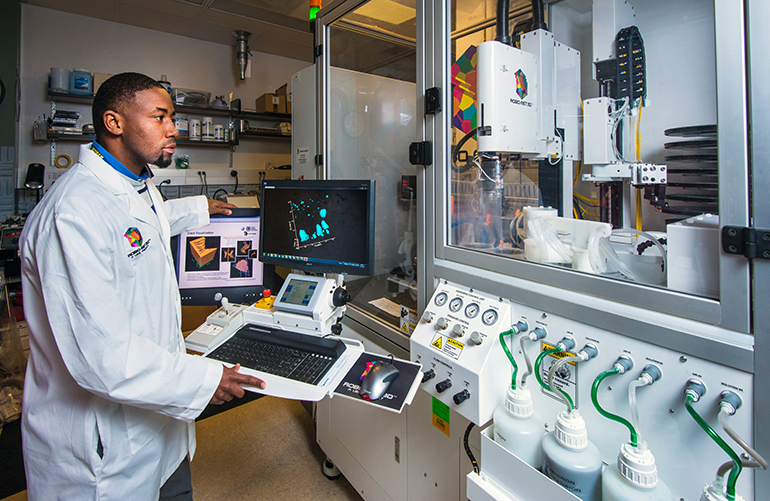Medtech manufacturers have access to a large talent pool of PhDs, post docs and others whom they can approach when needed to streamline the journey from product idea to market. Ramya Sriram, Kolabtree (Image courtesy of Science in HD on Unsplash) Medical device manufacturers may not always have all the skills to successfully bring a device to market in-house. In these circumstances, manufacturers with smaller internal teams can look for these skills elsewhere. For example, an increasing number of working professionals, including medical consultants in a range of fields, now choose to work remotely or as freelancers to have more flexibility. Why hire a consultant? Freelance scientists and researchers can support medtech manufacturers in a variety of ways, such as developing a device’s design, troubleshooting problems or preparing documentation for the regulatory approval process. This help is particularly beneficial to smaller companies that may not have sufficient funds to hire a full-time team member. Instead, they can access expertise and hire them solely for the duration of the project. Using freelancers also gives manufacturers access to a wider talent pool because there are no geographical limitations to their collaboration. Find the right expertise However, introducing an external specialist to a project is not as simple as advertising a project and hiring the best fit. Manufacturers should carefully consider how to find the person with the best skills for the project while also protecting their property. Manufacturers that use an online platform to search for a consultant should post a clear explanation of the job. Including a brief project description as well as details such as expertise required, project duration and budget means that the right consultants will find the project and apply. Protect your company Protecting intellectual property (IP) should always be a priority. Organizations may have concerns when working with freelancers or remote workers and feel reluctant to share sensitive data with someone who is not part of the company. If they manage the process properly, medical device manufacturers can confidently share proprietary information and ideas with others. Applying for patents or registering designs or trademarks can be a good first step to safeguarding products when working with external collaborators. How much information can you share knowing that some applicants will not work on the project?Manufacturers should look closely at the terms and conditions when looking for a freelance consultant on an online platform. These conditions should include a confidentiality clause that protects the client’s IP and gives freelancers the right to use only information or materials that are necessary for working on the project. The clause should also specify that the freelancer will return or destroy any information as requested by the client once the project is complete. Non-disclosure agreements (NDAs) can also lessen worry during collaborations. Manufacturers can ask potential collaborators to sign these documents before disclosing any information about the project. Once they’ve chosen a medical device consultant, manufacturers can discuss the project in more detail, feeling safe in the knowledge that they have protected […]
Click here to view original web page at www.medicaldesignandoutsourcing.com




